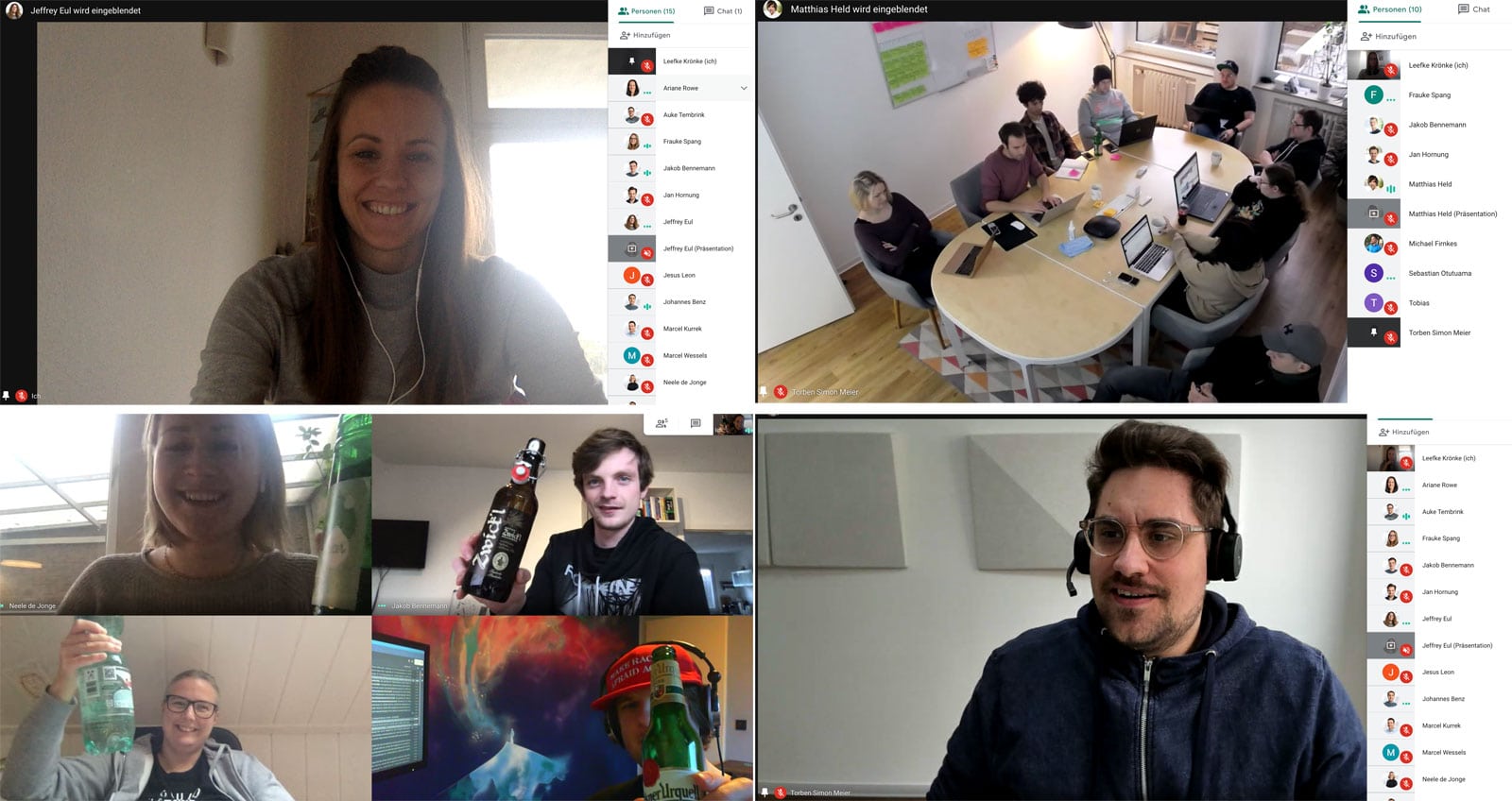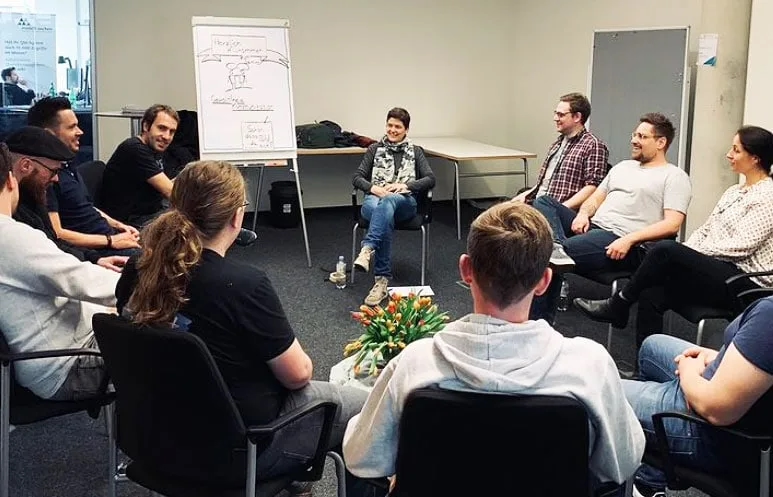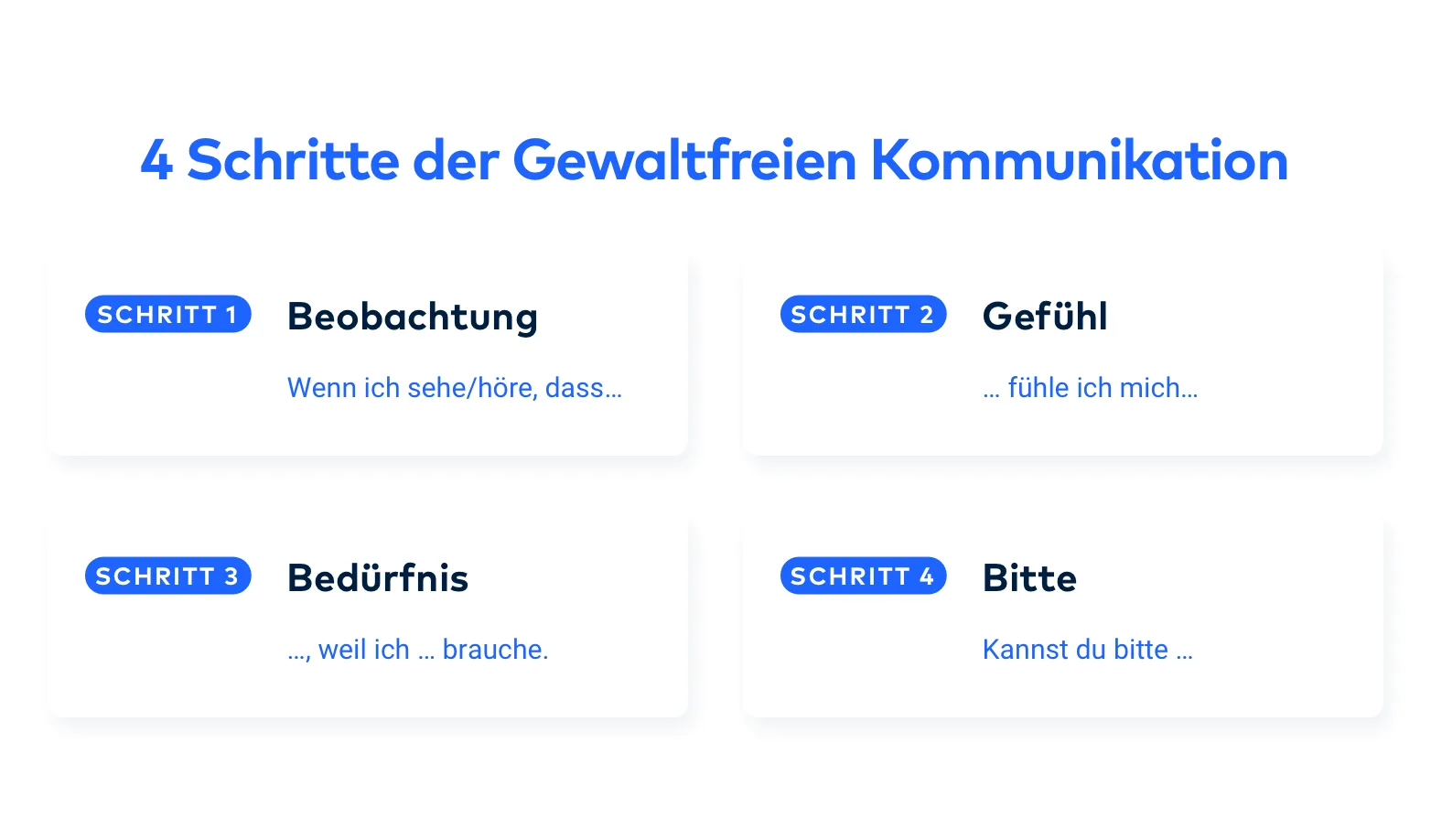More and more companies are promoting the mental and physical health of their employees. At Raidboxes, several teams take care of this, including “Mental Health”. How we want to ensure greater satisfaction in the workplace – and why this is so important to us.
There’s no doubt about it: a lot of things at Raidboxes are going very well. The innovative role concept of holacracy promotes flat hierarchies and maximum personal responsibility. In this way, everyone in the team can look for areas of work that they find particularly meaningful – and that suit their individual strengths. And yet we are aware that stress factors are also present in a company.
I personally really enjoy working at Raidboxes. Not because we don’t have any conflicts. But because we use methods and want to establish an open culture to deal with these stress factors. In this article, I present two of these methods. But first of all, what are the possible causes of conflict and stress in organisations? Among other things:
- A high workload due to a variety of projects.
- The strong growth of the team leads to new structures and processes. These can initially create more work than they compensate for.
- Conflicts also arise when roles and responsibilities are defined.
- Raidboxes is becoming more diverse. That’s wonderful, but there are challenges here too. For example, when it comes to different values or mindful communication in which nobody feels excluded.
We want to address any dissatisfaction that arises in good time and have a lasting positive influence on the working atmosphere. A whole bundle of measures ensures this:
Mental Health
At Raidboxes, there is a separate role and a small team called “Mental Health”. This shows how much this topic is close to the hearts of our managing directors Torben and Johannes. Mental Health was introduced for the simple reason of making Raidboxes employees happier. At work, but also beyond if necessary. Our team has the following tasks, among others:
- Recognising signs of critical mental health conditions among employees and teams.
- Contact person in the event of overload due to professional or private challenges.
- Training in mindfulness towards a diverse team and new colleagues, mindful communication culture in the office and in Slack (as we work remotely to a large extent).
- Protection against bullying. Fortunately, this has not yet been necessary, but we want to prevent it from the outset.
- Pay particular attention to introverted needs and ensure opportunities for retreat, for example for concentrated work.
- Support in achieving a good work-life balance.

We have developed several methods together to achieve these goals:
- Anonymous point of contact: This applies to problems of any kind, regardless of whether they arise at work or in private life (and therefore also have an impact on the work situation).
- Duty of confidentiality: We are informal contacts for all employees for all questions that should not go straight to the management/team leaders/colleagues. We always ask the people who come to us in advance before we turn to someone else with their concerns. For example, to help resolve the conflict.
- Mediation and supervision: If necessary, we mediate neutrally in conflict situations between employees, teams or between employees and management.
- Personal responsibility: At the same time, we always start by appealing to the personal responsibility of those affected. This means that we provide them with tips and methods to address the conflict themselves first – more on this in a moment. We do this so that the team culture becomes more open and transparent in the long term. Only when this is not possible – for whatever reason – do the other methods come into play.
- Just get things off yourchest: There are situations where it helps to be able to get things off your chest. True to the motto “disturbances have priority”.
- (Anonymous) surveys: These are used to record the status quo mood in the team. We use the Echometer tool for this. This allows us to measure the development of employees and individual teams according to various criteria.
- Organisation of workshops: For example, on the causes and coping strategies of psychological stress, but also on mindful communication. More on this in a moment.
In some cases, the Mental Health team already has the necessary professional background, for example through previous jobs and training. In all other cases, we continue our training – again with financial support from Raidboxes.
Strengthen personal responsibility
An area like mental health – or whatever you want to call it – requires the cooperation of all employees at the same time. Of course, we can’t have our eyes and ears everywhere, especially in times of coronavirus and remote working. We are dependent on people contacting us if they need to talk, pointing out overloads in individual teams or, if necessary, saying that another colleague is not feeling well.
The point of “personal responsibility” is of central importance. A channel like Mental Health can only ever be the first stage. It is good and right that employees turn to us before they “swallow their anger”. Or before a culture of “grumbling from behind” develops. The next step, however, is to motivate everyone in the team to speak up as soon as a conflict arises. Within the team, but also towards managers.
Without personal responsibility, methods such as mental health lead to conflicts being (anonymously) named but not adequately resolved. In the worst case, dissatisfied colleagues hide behind the channel, while others question its usefulness. This would ultimately affect the acceptance of the procedure.
As already mentioned, we strengthen personal responsibility by providing employees with the necessary methods to reflect on themselves and address conflicts directly. This extends to small one-to-one coaching sessions in which we develop possible options for action together with those affected – in a very practical way and based on specific use cases.
Non-violent communication (GfK)
A relaxed working atmosphere has a lot to do with how attentive communication is within the company. Ideally, conflicts are resolved constructively and jointly. And not through personal attacks or by avoiding each other in the event of disagreements. Because both lead to dissatisfaction and less growth.
There is a methodical approach to resolving conflicts in teams (and in the private sphere) known as non-violent communication – founded by the US psychologist Marshall B. Rosenberg. Raidboxes sponsors monthly workshops on non-violent communication for its employees, as well as related introductory courses (the picture dates back to pre-corona times):

Trainer Marianne Oshege regularly comes to our office to introduce us to the model. Communication according to the NVC model takes place in four steps:
- Observation: “When I hear/see/experience…”
- Naming feelings: “then I feel…”
- Expressing a need: “I have this need/this is why I need…”
- Formulatea specific request: “Can you please…”
Here again as a graphic:

One example:
“If I don’t get a reply from you via Slack, then I feel like I’m not being taken seriously/frustrated. I feel the need for efficiency/support/appreciation. That’s why I’m asking you to let me know briefly in future whether you’ve read my message and by when you can reply.
Some other simple rules of mindful communication are
- Avoid judging the other person or their behaviour. Instead, stay with yourself.
- A tool for this: Don’t speak in “you” messages (“You did this and that”), but in “I” messages (“I think that…”). This keeps the conversation constructive.
- The phrase “We agree” is also rarely helpful. On the one hand, you can’t always assume a consensus in the team, and on the other, you are moving away from the authentic level. Or you are hiding your personal opinion that you don’t want to reveal.
For many, the non-violent communication approach is unfamiliar at first. On the one hand, people are reluctant to talk about their feelings in a corporate context, and on the other, the specific approach requires openness and courage. This is often a major challenge, especially for introverted personalities. Some “offensive” characters, on the other hand, initially smile at the psychological approaches that are unmistakably contained in the four steps.

The training sessions with Marianne Oshege help us to reduce reservations on both sides. Using concrete examples from everyday team life, we learn how conflicts can be recognised more quickly using NVC, how we can best address them and how we can resolve them. I personally (ego message 😉 ) notice how my communication becomes more honest, solution-orientated, reflective and courageous as a result.
Mindfulness for companies
More and more companies and agencies are working with mindful structures in which the needs of all employees are continuously reflected and addressed. But why is knowledge about mindful communication even needed in a professional context?
Marianne Oshege sees the following reason: in an increasingly complex and fast-moving world of work, companies are choosing organisational forms of self-organisation with decentralised decision-making structures in order to meet these challenges. Decisions that used to be made through structure and hierarchy are increasingly being made by the individual.
According to Marianne, this means that more and more competence requirements are being shifted to the individual. They are therefore faced with the situation of having to act and work independently and flexibly. In other words, employees need more guidance for decisions and actions that they take on their own initiative than is the case in traditional hierarchical organisations. Here, everyone in the team is required to develop an inner compass that provides direction and orientation. And further:
I am convinced that companies need mindful communication to be successful. Mindfulness helps us to respond appropriately to impulses from the outside world. It helps us to be in contact with ourselves in such a way that we are clear: What do we need? And how do we want to deal with what we encounter? We find orientation on the inside where we lack it on the outside.
At the same time, mindfulness and mindful communication help us to communicate this inner process and our intentions for action to the outside world in an appreciative and cooperative manner. In this way, it is possible for the team to work together, deal with diversity and resolve or withstand tensions.
What progress has the Raidboxes team made since we started working with non-violent communication and mindful action? Marianne comments on this:
I see progress in the fact that more and more employees are warming to the topic of mindful and non-violent communication. They are willing to work on themselves to achieve a different way of working together and to invest time in doing so.
And further:
Something has changed for me in terms of awareness at Raidboxes. I have the impression that employees are realising that it does make a difference how they speak and interact with their colleagues. And that there is a need to change behaviour.
The desire for respectful and authentic cooperation is tangible. The process that can make this possible is definitely underway at Raidboxes, says the trainer.
Promote mindfulness
Mental health and non-violent communication are just two of the measures Raidboxes uses to promote greater mindfulness. Within the team, but also towards our customers and society. Here is a selection from different areas:
- Social and health promotion: This is done for all employees. For example, through company pension schemes, employee budgets, budgets for personal development, fitness, etc.
- Role Equality: The area of responsibility includes, among other things, compliance with and safeguarding gender equality. It also covers issues such as equal opportunities within the company, work-life balance, cultural/religious and sexual diversity (LGBTQI+) and measures to combat personal and structural discrimination.
- Role of Happy Management: The Raidboxes team meets regularly for joint events. Unfortunately, the current situation is currently slowing things down. Happy Management takes care of the organisation of such events, as well as the well-being in the office and beyond. The term is well known in the start-up and new work scene and is sometimes also referred to as feel-good management.
- Corona aid: We support customers from industries that have been particularly hard hit by the consequences of the pandemic: Culture, catering, hotels and events. Find out more about our programme.
- #supportyourlocals campaign: Corona is a crisis for local retailers, while platforms such as Amazon are making huge profits. This is another reason why we are supporting the #supportyourlocals campaign with free hosting for portals that digitally connect local businesses.
- Code of Conduct: The Raidboxes Code of Conduct is a code of behaviour, also known as a team agreement in some companies. It contains guidelines on how we want to organise interaction and communication within the team – on a respectful basis. This gives our measures a sustainable structure. More on this soon in a separate article (subscribe to the comments if you want to be informed).
Of course, this also includes our green hosting. With many initiatives on the subject of sustainability, which also indirectly ensure mindful and social interaction.
Carrying the message
Raidboxes is already making a difference. And yet there are areas where we want to do even better. We already take care to work with suppliers who work sustainably themselves. But what about issues such as precarious working models and employee monitoring? For example, the many online delivery services that are currently springing up and being criticised? Or at Amazon, as recently documented in VICE magazine?
Further tasks await us here, but there are already plans for these too. For example, as part of a new or expanded sustainability role. We are aware that our approach will result in more financial expenditure internally. Or that convenience will suffer in one place or another. But we accept that. In order to do our part as a team to create a better working environment.
What is your contribution?
How do you or your team create a better working environment? What questions do you have about the methods mentioned? Please feel free to use the comment function. For more insights on WordPress, web design or online business, follow Raidboxes on Facebook or LinkedIn – or subscribe to our newsletter.

Leave a Reply